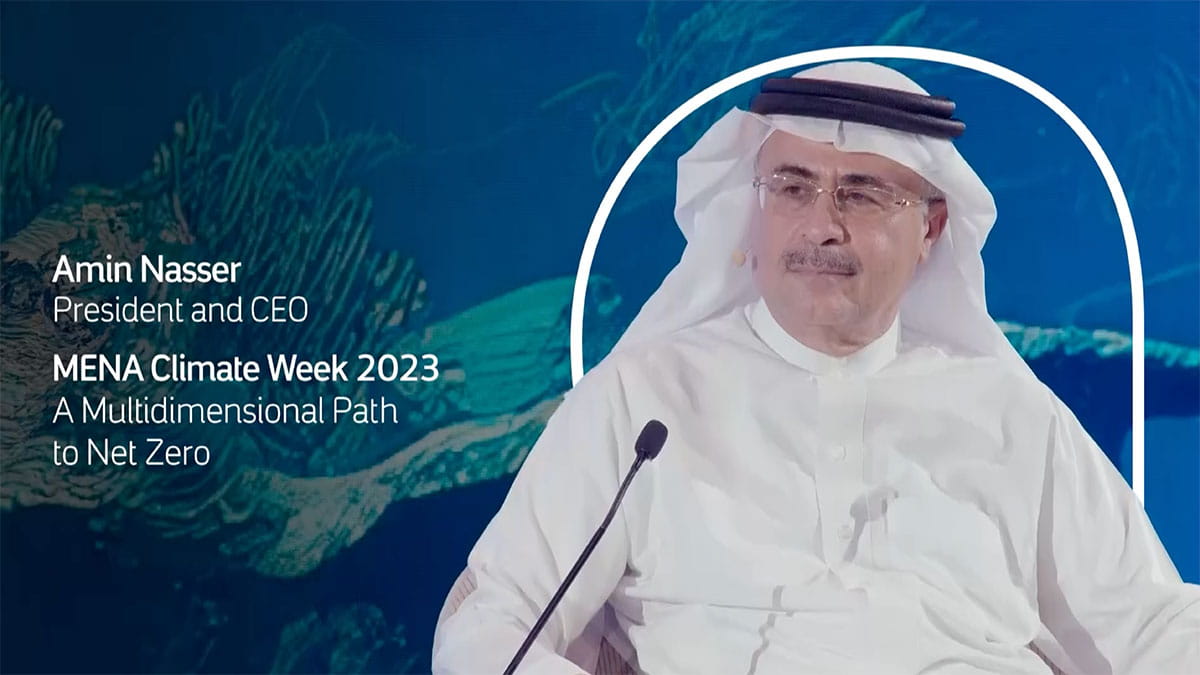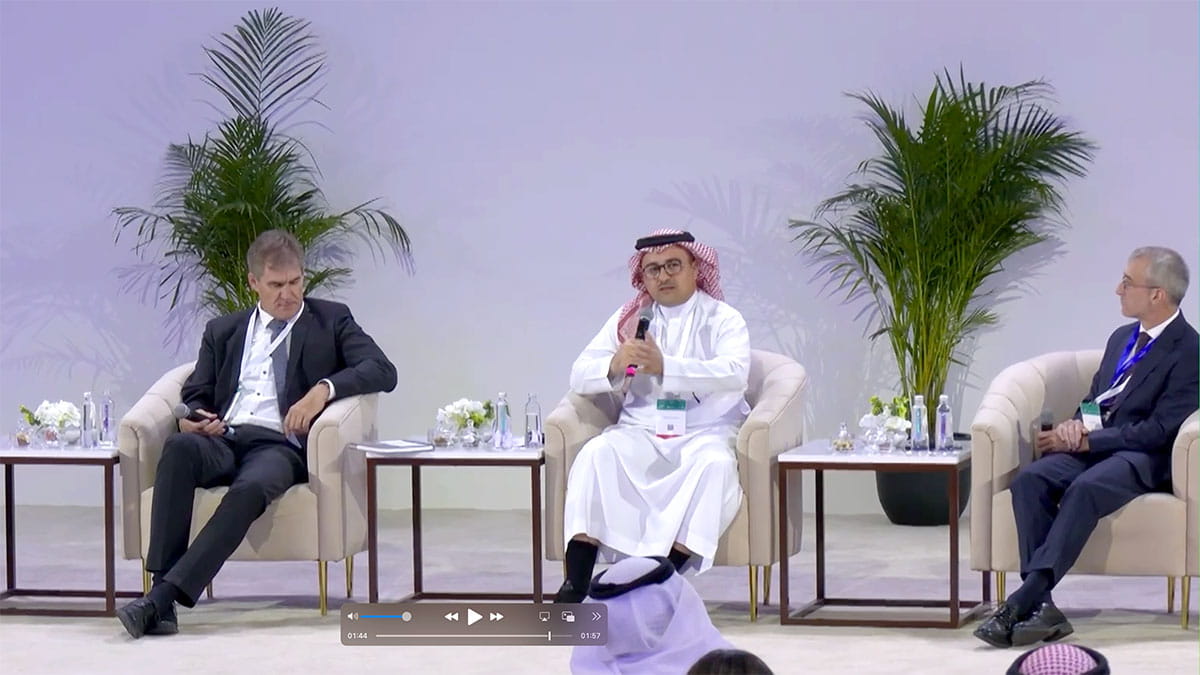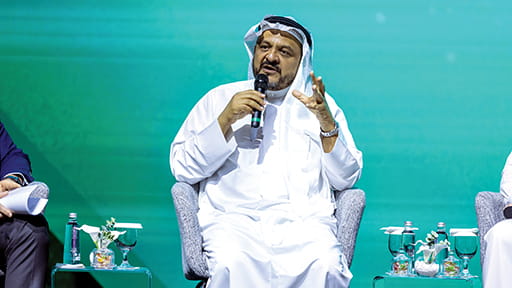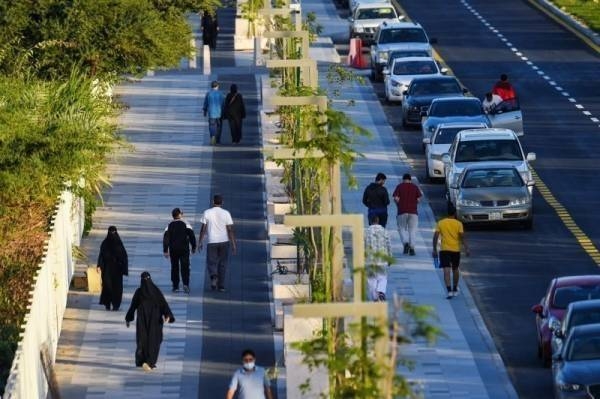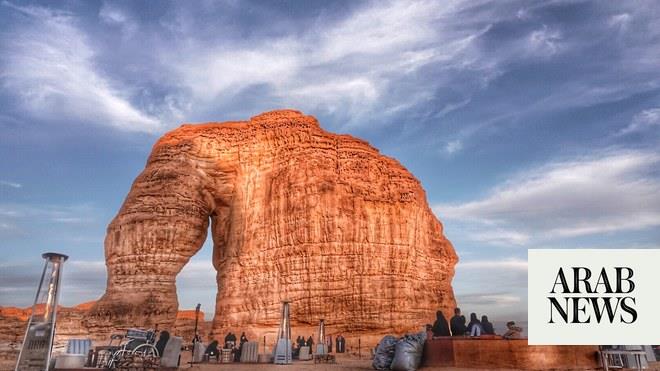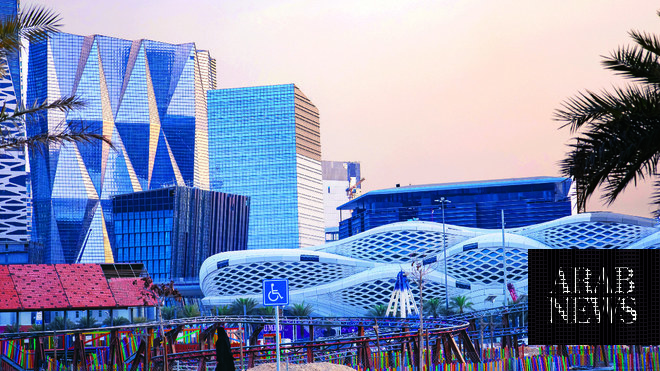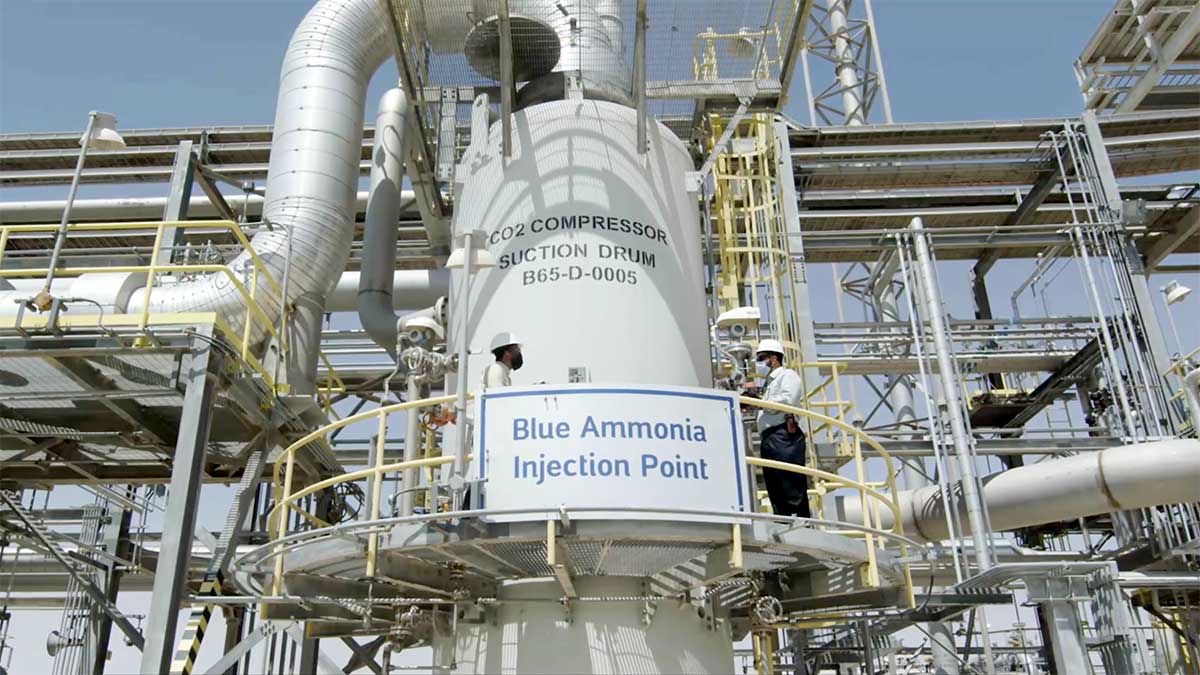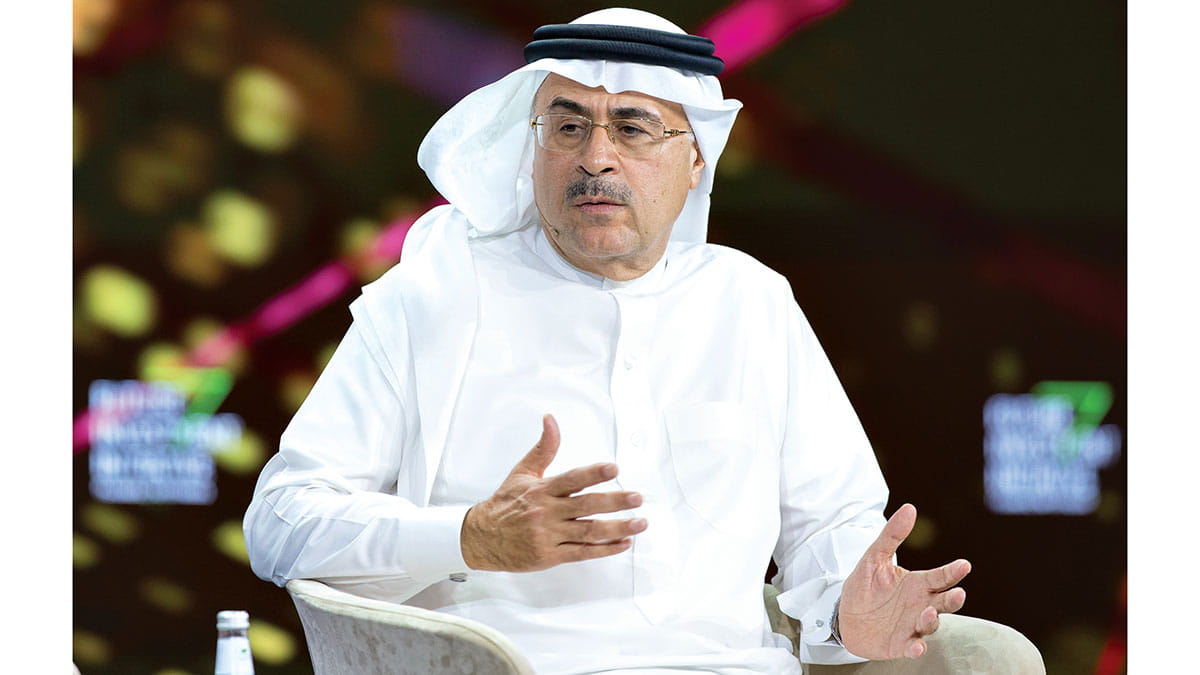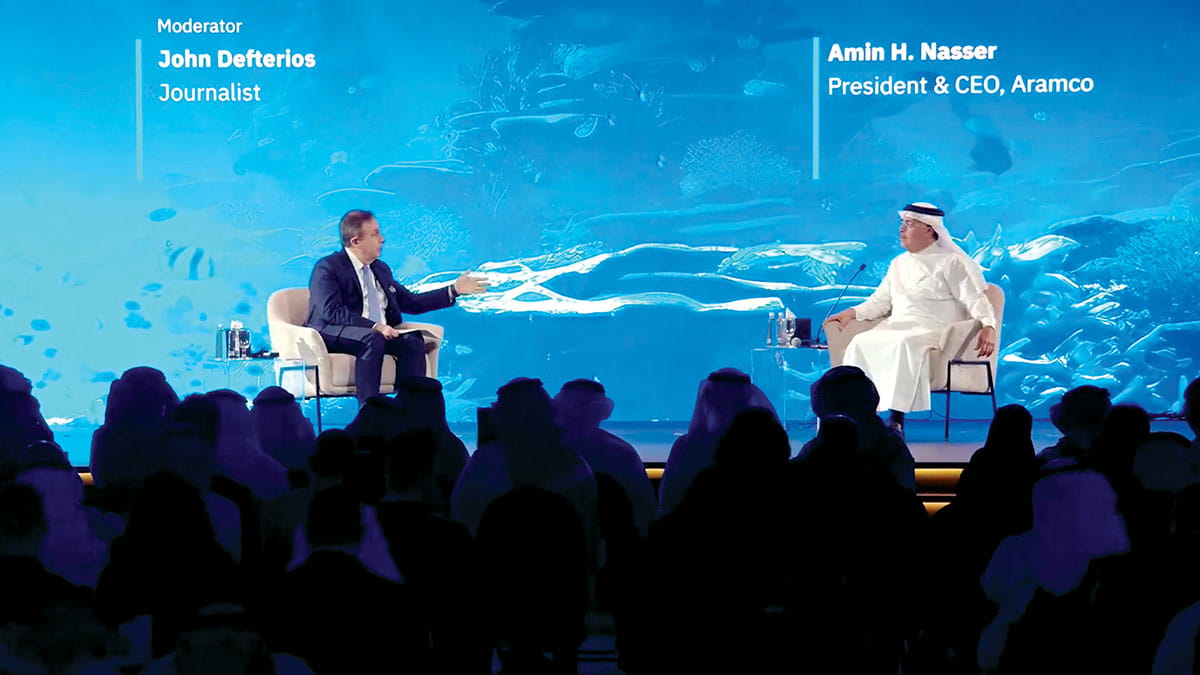
Speaking at the 2023 Middle East and North Africa Climate Week (MENACW) in Riyadh last week, Amin Nasser, president and CEO of Aramco, highlighted the hard realities and complexities associated with the energy transition while reflecting on the need for a long-term approach to address the climate challenge with the right talents and teams.
Nasser stated that it was vital to have the right people and “a focus always on the long-term,” adding that any sensible climate solution to yield more benefits to energy consumers would come from a long-term strategy, and not a short-term fix. He said it was imperative to have “the right talent, the right system and programs, and the right contingencies” for each and every scenario.
During a fireside conversation titled “A Multidimensional Path to Net Zero,” with John Defterios, former CNN emerging markets editor, Nasser reiterated the need for a “balanced” energy transition, while highlighting the importance of carbon capture utilization and storage (CCUS) technologies and new energies like hydrogen that are vital to reducing overall greenhouse gas (GHG) emissions.
Hosted by the Kingdom’s Ministry of Energy in collaboration with the United Nations Framework Convention on Climate Change (UNFCC), the second-ever MENACW brought together key global and regional stakeholders to explore challenges and opportunities. It also showcased innovation and solutions through ministerial panels and roundtable discussions, as well as a series of events, including technical workshops and an exhibition by the Kingdom to demonstrate local efforts and initiatives ahead of COP28 in Dubai later this year.
Energy transition
Examining what the future of global oil demand may look like, Nasser stated, “We are making sure that we have adequate supply, while at the same time recogniz(ing) the need to reduce emissions.” He said there will be growth in demand for decades to come, and that efforts to reduce GHG emissions from our existing energy will continue.
Nasser reiterated that balance is critical to address and manage the trilemma of energy security, affordability, and sustainability, referencing Chinese president Xi Jinping’s principle: “When it comes to energy transition, we need to be balanced — we need to build the new before we discard the old.”
Hydrogen and CCUS
Nasser stated that Aramco is investing in renewables, while also leveraging technology and innovation. He went on to emphasize the importance of hydrogen to the energy mix, and discussed how policymakers can enable the right business environment. Nasser also explained the importance of investing in CCUS, which is relevant for many industries, including hard-to-abate (HTA) sectors, such as aluminum, steel, and cement. He added that “you can’t really solve [the HTA emissions] problem without CCUS,” and that the technology would also play a role for many industries, including agriculture and construction.
To help Aramco meet its ambitions for net zero Scope 1 and Scope 2 GHG emissions by 2050 across its wholly-owned operated assets, and also play a key role in helping Saudi Arabia to achieve its net zero goal by 2060, the CEO said that hydrogen and CCUS would be important, adding that efficiencies across the company’s systems would also help align net zero targets.
Leadership
HRH Prince Abdulaziz bin Salman Al-Saud, the Kingdom’s Minister of Energy, inaugurated MENACW in the presence of global officials, policymakers, private sector firms, youth campaigners, and other key stakeholders in the climate change and sustainability sphere, stating that Riyadh’s hosting was “a sign of the Kingdom’s unwavering commitment to exploring all solutions to the climate challenges we currently face.”
Sultan bin Ahmed Al Jaber, COP28 president, delivered a formal address to the MENACW opening ceremony, calling on nations in the region to expand on their legacy of climate leadership to drive inclusive progress ahead of COP28. The first “Global Stocktake,” which concludes at COP28, is an opportunity to critically assess where the world stands on climate action and to chart the course forward through increased ambition and action to limit global warming.
From the Aramco side, Ahmad O. Al Khowaiter, executive vice president of Technology and Innovation, also spoke on “How the Energy Transition is Creating a Materials Transition,” and Fahad K. Al Dhubaib, senior vice president of Strategy & Market Analysis, discussed “Unlocking CCUS Potential.”
Caption for top photo: Amin Nasser reflected on what it means to be the president and CEO of Aramco during a period of extreme complexity in the world. He stated that it was vital to have the right people and a focus on the long term.




